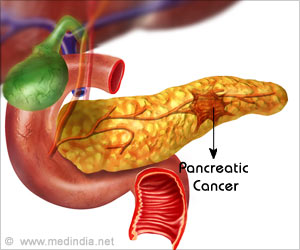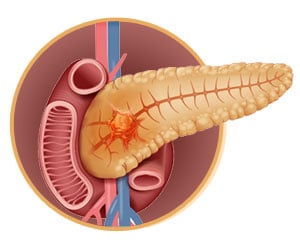Fasudil improves entry of chemotherapy drugs into pancreatic cancers in a mouse model.
- Pancreatic cancer is difficult to treat due to the stroma surrounding the cancer that reduces the penetration of chemotherapy drugs
- Fasudil targets the stroma and makes the blood vessels leaky, thereby enhancing the entry of the chemotherapy drugs
- Further studies in humans with pancreatic cancer may unveil a therapy that could improve outcomes in pancreatic cancer
Researchers from Australia have tried out an approach in which the stroma is first attacked using a drug called fasudil, a Rho-kinase inhibitor. Fasudil also made the blood vessels surrounding the cancer cells leaky, thus allowing the entry of chemotherapy drugs. The researchers carried out their experiments on mouse models of pancreatic cancer. The mice were treated with fasudil for three days, followed by chemotherapy. The researchers found that:
- The survival time of the mice with the cancers doubled
- The spread of cancer cells to other tissues like the liver was reduced
- The benefit was noted in the cancer localized in the pancreas as well as that which had spread to other sites
Fasudil is currently used in Japan for the treatment of stroke. It could be a boon to people with pancreatic cancer if the results of the study could be reproduced in pancreatic cancer patients.
Reference:
- Vennin C et al. Transient tissue priming via ROCK inhibition uncouples pancreatic cancer progression, sensitivity to chemotherapy, and metastasis. Science Translational Medicine 2017: Vol. 9, Issue 384, eaai8504 DOI: 10.1126/scitranslmed.aai8504
















